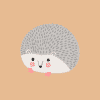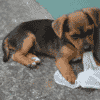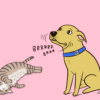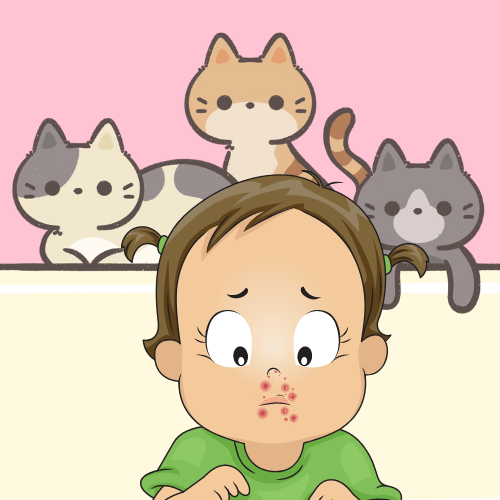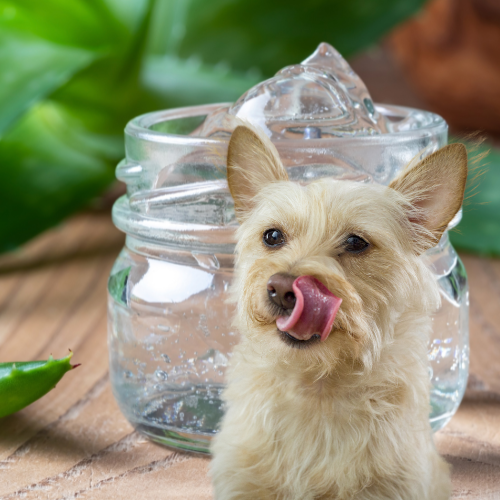Guinea pigs are widely recognized for their active and gregarious lifestyles, as well as their ferocious appetites. Your guinea pig’s inability to maintain an adequate caloric intake is a worrying sign of possible illness. In this post, we will go over all the potential causes and reasons why guinea pigs might not be eating or drinking, as well as what you can do to assist them.
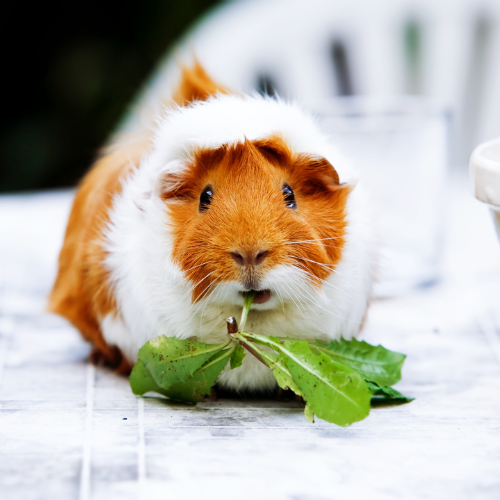
Reasons: Why Are Guinea Pigs Not Eating or Drinking Properly
The following are some of the reasons why guinea pigs’ usual feeding and drinking routines could be disrupted:
- Recent Surgery
The guinea pig will not be able to eat after surgery. If your guinea pig isn’t eating, your vet can give you tips on how to get it to eat. Giving your Guinea pig some extra care and Vitamin C in their food can go a long way toward speeding up their recovery.
- Generalized sickness
As with humans, sickness is the most common cause of a guinea pig stopping its normal feeding and drinking routines. Diseases that often affect guinea pigs include respiratory infections, gastrointestinal issues, and dental abnormalities. If your pet suddenly stops drinking water or eating food, it may be sick, and you should take them to the clinic immediately.
- Not enough clean water
Guinea pigs require a constant supply of freshwater. They can stop eating, among other things, if they don’t get their daily quota of water, which is about 90 ml to 120 ml, depending upon their age and weight. Try to provide fresh water to your guinea pigs all the time.
- Dental Problems
Dental problems commonly cause guinea pigs’ refusal to eat or drink. Since guinea pigs’ teeth are constantly erupting through the gums, the animals must constantly gnaw on things to keep the sharp edges filed down. Overgrown teeth can make it difficult for a person to consume food and drink, resulting in malnourishment and weight loss.
- Stress
Guinea pigs may stop eating if they are under stress. Stress can be caused by various factors, including a lack of space, sickness, excessive noise, poor or extreme handling, or excessive petting. Get rid of whatever is causing your guinea pig stress and see if it will start eating again.
- Improper diet
Their lack of appetite might be due to a poor or improper diet that does not provide enough essential nutrients. When the body isn’t getting enough of a crucial nutrient, it becomes depleted and unable to function properly. If this happens to your guinea pig, it may develop anorexia and cease eating as its health declines. Thus, you must provide your guinea pig with a healthy, varied diet.
- Age
There is some evidence that guinea pigs lose their appetite and their health decrease as they age. When guinea pigs get older, they often lose the capacity to chew and swallow their food, which might cause them to eat less food and water.
- Unbalanced emotions
It might be challenging to recognize whether your pet is experiencing an emotional imbalance. Emotional discord can have severe consequences for your pet’s physical well-being. Several things might be upsetting your piggie. The environment may put people under a lot of strain, which can manifest in many ways, including relocation, dietary shifts, etc. A combination of them causes adverse hormone secretion, altering guinea pigs’ normal eating and drinking patterns.
- Temperature fluctuations
Your guinea pig will die if the temperature rises or falls too far outside the safe range—extreme temperatures, whether freezing or scorching, threaten guinea pigs’ survival.
What Should You Do if Your Guinea Pig Isn’t Drinking Water or Eating Food?
If you notice that your guinea is not drinking as much as usual, you might try the following.
- Consult a veterinarian: If you notice that your guinea pig is not eating correctly, you must consult a veterinarian as soon as possible. Your guinea pig should be examined by your veterinarian so that they can identify any underlying health problems, as well as give medication if necessary.
- Provide your guinea pig with tiny amounts of food and water regularly. If you notice that your guinea pig diet is improper, you should regularly provide it with small amounts of food and water. You may determine which sort of food and water your pet prefers by providing it with various options, including hay, fresh veggies, and water bottles.
- Provide your guinea pig with soft foods: If you notice that your guinea pig has trouble chewing, you should provide it with soft foods such as veggies and hay. In addition, in order to assist in improving your nutrition, your veterinarian may suggest that you follow a particular diet or take dietary supplements.
- Ensure a stable and pleasant environment: Ensure that the living circumstances in which your guinea pig is housed are comfortable, sanitary, and secure. Maintain a consistent temperature, level of light, and amount of noise, and make sure there are lots of places to hide and toys for the children to play with.
Guinea pigs are sociable creatures, and regular engagement and games with you can help lower their stress and boost their appetite. Make sure to provide them with opportunities for social connection.
Warning: If your Guinea pig is not eating correctly, it might develop serious health problems, and you should seek veterinarian attention as soon as possible.
Health and Management of Guinea Pigs
It is vital to do the following in order to keep guinea pigs in good condition and manage them properly:
It is vital to do the following in order to keep guinea pigs in good condition and manage them properly: You should provide your pet with a diet that includes fresh vegetables, hay, and a moderate amount of pellets.
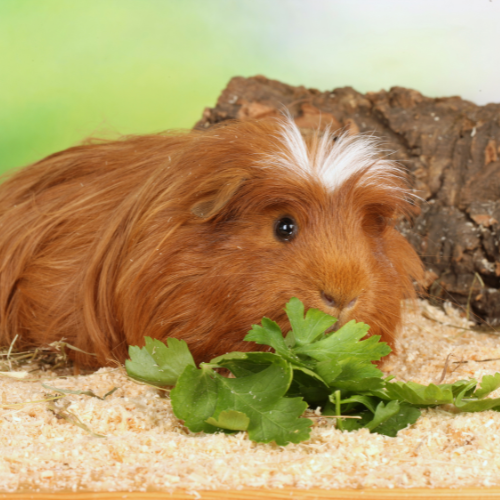
- Make potable water available: Make sure that there is always fresh, clean water accessible, either in a bottle or a dish, and do this at all times.
- Maintain a clean climate: Regular cleaning of their enclosure and bedding can help avoid the spread of disease and parasites.
- Training to get along with others: Guinea pigs are sociable animals who do best when kept in pairs or small groups. It is essential to provide your guinea pig with the opportunity to socialize and engage with other animals.
- Regular check-ups: You should take your guinea pig to the veterinarian frequently so that you can monitor its health and provide prompt treatment for any potential health problems that may arise.
- Avoid rapid changes: You may reduce the likelihood of your guinea pig being stressed and experiencing health problems by gradually adjusting its nutrition, surroundings, and routine.
You may assist assure the appropriate health and well-being of your guinea pig by adhering to these instructions and following them to the letter.
FAQs
Why Do Guinea Pigs Frequently Stop Eating, and What Are the Most Typical Causes?
The most prevalent causes why guinea pigs quit eating include illness, dental issues, stress, changes in nutrition, old age, and climatic influences.
Is It Typical for a Guinea Pig to Go Without Food for One or Two Days at a Time?
It is not customary for a guinea pig to go without food for more than a day. Guinea pigs need a steady supply of food to keep their health up, and if they stop eating/drinking for an extended length of time, it may indicate a more severe problem with their health.
How Do I Get My Guinea Pig to Consume More of His Food?
It is possible to urge your guinea pig into eating by providing it with water and small amounts of food regularly throughout the day. You can determine what kind of food and water your guinea pig likes most by providing it with various options, like hay, fresh vegetables, and water bottles. If your guinea pig has difficulty chewing, you might try giving it hay or soft foods to eat.
Is It Possible for a Guinea Pig to Cease Eating Due to Stress?
Guinea pigs can indeed become so stressed that they quit eating. Guinea pigs are sociable creatures who do best when kept in pairs or groups no larger than three.
What Kind of Food Should I Give My Guinea Pig if It Stops Eating Its Normal Diet?
If you notice that your pet guinea is not consuming the food that is typically part of its diet, consider providing it with soft foods such as fruits and vegetables or hay. Your veterinarian may also suggest that you follow a certain diet or use dietary supplements in order to achieve your nutrition goals.

Doctor of Veterinary Medicine (D.V.M.) at Nation Taiwan University,Master of Science (M.S.) in Biomedical Engineering at National Taiwan University of Science and Technology
